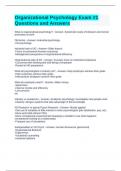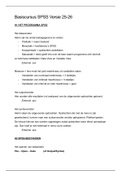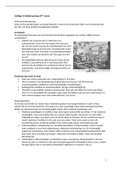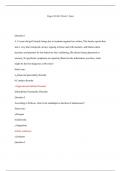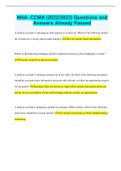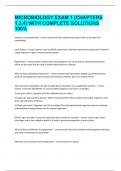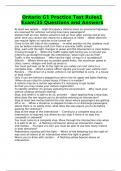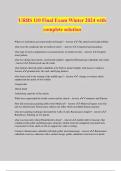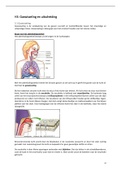Exam (elaborations)
Organizational Psychology Exam #1 Questions and Answers
- Module
- Institution
What is organizational psychology? - Answer--Systematic study of behavior and mental processes at work Old terms - Answer--Industrial psychology -I/O psychology Industrial side of I/O - Answer--Older branch -Focus on personnel (human resources) -Management perspective of organizational eff...
[Show more]
